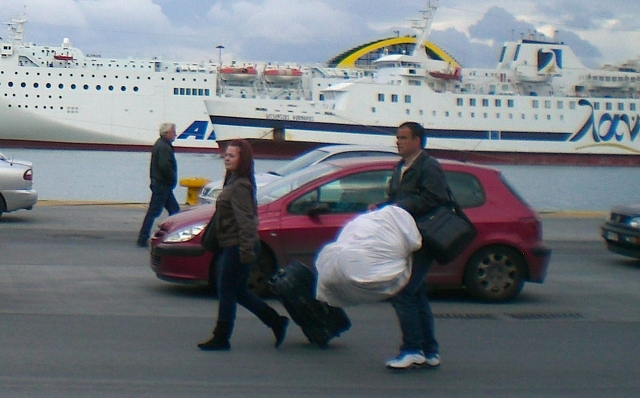Victoria Mindova
Greece will remain without maritime transport until Thursday morning, when the 48-hour strike of the union of maritime workers (PNO) will expire. "The strike is valid for the whole country, all ports and all labour and trade unions in the sector support it unconditionally," said especially for GRReporter the president of the sailors trade union Antonis Dalakagiorgos. He refuted the statements that the protest was initiated mainly by representatives of the Greek Communist Party (KKE) and stressed that the unionists of maritime transport of all parties support the just (in their opinion) demands of workers.

First, representatives of PNO refuse to accept the government's decision to include the health insurance fund of the employees in the commercial fleet in the common health insurance organization. "If the government had accepted this demand, it would be much easier to cancel the announced strike. Even now, if they ensure us that they will keep the independence of the fund from the rest, we are ready to stop the strike," said the trade unionist.
Two days ago, the Greek government voted an addition to the law on health insurance, which included the health insurance fund of sailors in the general health insurance system. Disregarding the strike, the government is adamant that it will not cancel its decision and it has been enforced this week.
Greek insurance funds have been experiencing very serious problems for years, but after the haircut of the nominal value of Greek government bonds (PSI), they have become even worse. The findings of local journalists suggest that the liberalization of maritime transport in Greece would seriously damage the interests of trade union circles and this is the main reason for the fuss about the reforms in the country.
A journalistic investigation by Sky TV shows that the general secretary of the union of maritime workers Yiannis Halas receives a monthly salary of 15,000 euro, which is far above the average salary in the sector.
Increased unemployment in the country did not miss the maritime transport sector. It contributes 16% to GDP and provides 18% of jobs in the country. According to trade unions, due to the crisis, 35% of the workforce from civil shipping are now unemployed. Greek sailors are worried they will lose their jobs if the cabotage for tourism fleet and maritime transport is cancelled.
Signing collective labour agreements is their other main demand. They were abolished by a law too as part of the liberalization of the labour market and apparently, strikes of any trade union organization will not influence the change. "When it comes to sailors, the problem is more serious, because many transport companies have not entered retroactively the wage increases since 2010. Moreover, they have not paid the salaries to the majority of workers since October last year. If there are no collective labour agreements to protect our rights, the companies will stop paying us wages at all. Then, it will be a mess all round," said Dalakagiorgos.
The government will not give up but to calm down the spirits, it guarantees that it will not mobilize the strikers. They, in turn, said that the strike will continue for 48 hours, but it will not be extended until the end of the week, because they do not want to create additional problems for the sectors such as tourism and agriculture affected by it. However, Holy Week in Greece is not expected to end quietly, after the union of drivers of interurban busses said they would block the traffic on Thursday with similar demands to those of the sailors.